#api 6a
Explore tagged Tumblr posts
Text
The Role of API 6A Flanges in Oil and Gas Exploration
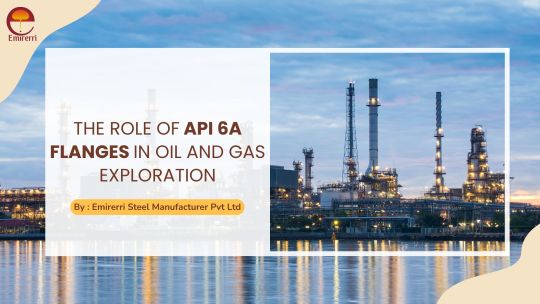
The oil and gas industry is one of the most demanding sectors, requiring precision-engineered components to ensure safety, efficiency, and reliability. Among the myriad components used, API 6A flanges are pivotal in the exploration and extraction processes. These flanges are specially designed to meet the rigorous standards of the American Petroleum Institute (API) for use in critical operations. This article explores the importance, functionality, and applications of API 6A flanges in oil and gas exploration.
What Is API 6A Flanges?
The API 6A specification covers wellhead and Christmas tree equipment, including flanges, connectors, and other critical components. These standards ensure that all components meet specific pressure, temperature, and material compatibility performance criteria. API 6A flanges are built to withstand extreme operational conditions, such as high-pressure and corrosive environments commonly encountered in oil and gas fields.
API 6A flanges are available in different types, including:
Blind Flanges: Used to seal the ends of piping systems or wellbore openings.
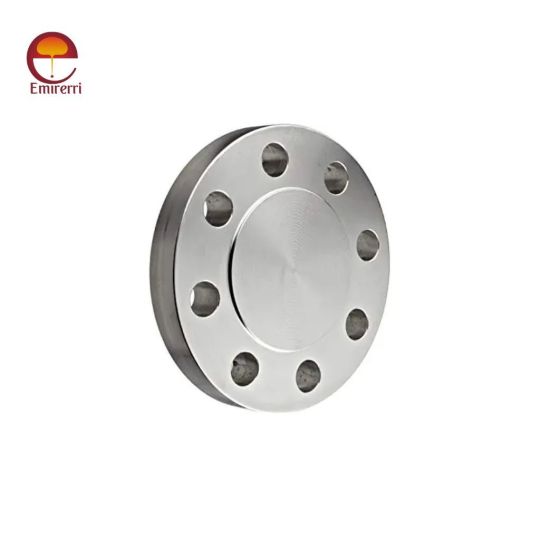
Weld Neck Flanges: Designed for high-pressure applications and seamless integration with pipelines.
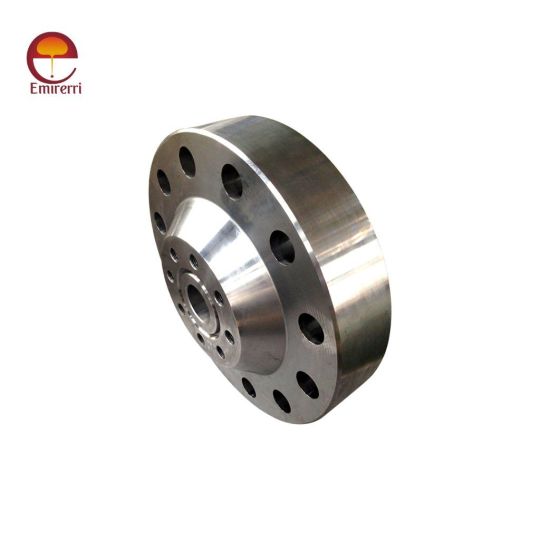
RTJ (Ring-Type Joint) Flanges: Known for their leak-proof connections, especially in high-temperature and high-pressure environments.
Applications in Oil and Gas Exploration
API 6A flanges are indispensable in various stages of oil and gas exploration, including:
Wellhead Equipment: Flanges are crucial in connecting and securing components like valves, blowout preventers (BOPs), and tubing spools on the wellhead. This ensures a tight seal and structural integrity under high pressure.
Pipeline Connections: These flanges provide secure and reliable connections for transporting oil and gas from the extraction site to processing facilities.
Subsea Installations: In offshore exploration, API 6A flanges are used in subsea wellheads to maintain secure connections under immense underwater pressure.
Manifold Systems: Flanges are integral to manifold systems that distribute oil and gas flow from multiple wells to processing facilities.
The Manufacturing Process
The production of API 6A flanges involves several critical steps to ensure compliance with industry standards:
Material Selection: High-quality raw materials are chosen based on the intended application and environmental conditions.
Forging: The material is forged under high pressure to enhance its strength and grain structure.
Heat Treatment: Heat treatment processes, such as quenching and tempering, improve the mechanical properties and durability of the flange.
Machining: Precision machining ensures accurate dimensions and surface finishes for optimal sealing performance.
Testing and Certification: Rigorous testing, including pressure, temperature, and non-destructive testing (NDT), ensures the flange meets API 6A specifications.
Challenges and Future Trends
Despite their robustness, API 6A flanges face challenges, such as:
Corrosion: Continuous exposure to saline water and corrosive fluids necessitates advanced materials and coatings.
High Costs: Using premium materials and complex manufacturing processes can increase costs.
To address these issues, manufacturers are exploring innovations such as:
Advanced Materials: Development of superalloys and composite materials to enhance corrosion resistance and reduce weight.
3D Printing: Additive manufacturing techniques to produce customized flanges with reduced lead times and waste.
Digital Integration: Smart flanges equipped with sensors to monitor pressure, temperature, and structural integrity in real-time.
The Seal of Safety: Preventing Leaks
One of the most critical functions of API 6A flanges is their ability to provide a reliable, leak-proof seal. In the oil and gas industry, even the smallest leak can be disastrous. Oil and gas leaks can lead to hazardous working conditions, environmental damage, and even catastrophic explosions. API 6A flanges are designed with multiple sealing mechanisms, such as gaskets and O-rings, that ensure a tight, secure connection between pipeline segments or other pieces of equipment.
Flanges are often paired with specialized sealing technologies to enhance their performance. The tightness of the seal prevents the escape of pressurized fluids and gases, which is essential for operational safety and environmental protection. Whether it's a high-pressure oil pipeline or a gas wellhead, API 6A flanges create the barrier that keeps everything contained, reducing the risk of leaks and improving safety for workers and the surrounding environment.
Cost Efficiency and Maintenance
Another reason API 6A flanges are so vital to oil and gas operations is the impact they have on cost efficiency. Oilfield operations can be extremely expensive, and downtime can cost millions of dollars. By using high-quality, reliable flanges like those made to API 6A standards, companies can reduce the likelihood of leaks or failures, which in turn reduces costly maintenance and repair needs.
These flanges are built to last, meaning that operators can rely on them for the long term, which ultimately lowers the total cost of ownership. Routine maintenance is also made easier thanks to the design of the flanges, which can be disassembled and reassembled quickly, without requiring extensive downtime.
Conclusion
API 6A flanges are vital components in oil and gas exploration, providing the reliability and safety necessary for challenging operational environments. Their ability to withstand high pressure, resist corrosion, and ensure leak-proof connections makes them indispensable in the industry. As technology advances, the evolution of materials and manufacturing techniques will further enhance the performance and cost-efficiency of these critical components, supporting the growing demands of global energy exploration.
0 notes
Text
AVN Professional Quality – Your Trusted Partner for API Training, Certification, and Consulting in India
AVN Professional Quality is a leading provider of specialized API training, certification, and consulting services in India, dedicated to helping professionals and organizations achieve excellence in the oil, gas, and petrochemical industries. Our services are designed to meet global standards, ensuring our clients stay compliant, competitive, and confident.
We offer industry-recognized API training and certification programs that provide in-depth knowledge of API standards, preparing individuals for various certification exams. Whether you're new to the industry or looking to upskill, our expert-led training ensures a thorough understanding of critical concepts and compliance requirements.
As experienced API consultants in India, we provide end-to-end support for API certification, audits, and compliance. Our consultants work closely with organizations to streamline processes, implement best practices, and successfully navigate API inspections and quality system requirements.
One of our flagship programs, the API 6A Training in India, focuses on the specifications and operational standards for wellhead and Christmas tree equipment. This course is ideal for professionals aiming to specialize in pressure control equipment and enhance their technical expertise.
Choose AVN Professional Quality for reliable, comprehensive, and globally relevant API training and consulting solutions—empowering your workforce and strengthening your business.
0 notes
Text
API 6A Valves Market Insights and Growth Projections 2024 - 2032
The API 6A valves market is a critical segment within the oil and gas industry, particularly concerning drilling and production operations. These valves, which conform to the American Petroleum Institute (API) 6A specifications, are designed to handle high pressures and severe conditions encountered in wellhead equipment. This article provides an in-depth look at the API 6A valves market, including market dynamics, trends, challenges, and future outlook.

Introduction to API 6A Valves
The API 6A valves market is positioned for steady growth, driven by increasing energy demands, advancements in technology, and expanding exploration activities. While challenges such as fluctuating oil prices and competition from alternative energy sources exist
What are API 6A Valves?
API 6A valves are specialized valves used in the oil and gas sector, specifically in drilling and production applications. They are designed to withstand high pressures and temperatures while ensuring safety and reliability. These valves are typically used in wellhead control systems and are essential for maintaining the integrity of drilling operations.
Importance of API 6A Valves
The reliability of API 6A valves is crucial for safe and efficient oil and gas extraction. They play a vital role in controlling the flow of fluids, ensuring pressure management, and providing emergency shut-off capabilities. Given the high-risk nature of the oil and gas industry, the performance of these valves directly impacts operational safety and efficiency.
Market Overview
Current Market Trends
The API 6A valves market is experiencing steady growth due to several key trends:
Rising Oil and Gas Production: Increased global demand for energy has led to heightened exploration and production activities, driving the need for reliable valve solutions.
Technological Advancements: Innovations in valve design and materials are improving the performance and durability of API 6A valves, making them more attractive to end-users.
Regulatory Compliance: Stricter safety and environmental regulations are pushing companies to invest in high-quality valves that meet API 6A standards.
Market Segmentation
The API 6A valves market can be segmented based on product type, application, and region.
By Product Type
Gate Valves
Ball Valves
Check Valves
Plug Valves
Others
By Application
Onshore
Offshore
By Region
North America
Europe
Asia-Pacific
Latin America
Middle East and Africa
Key Drivers of Market Growth
1. Increasing Demand for Energy
The global increase in energy demand, driven by population growth and industrialization, is a significant driver for the API 6A valves market. Oil and gas companies are ramping up production to meet this demand, necessitating reliable and efficient valves.
2. Expansion of Oil and Gas Exploration Activities
New drilling projects and enhanced oil recovery techniques are prompting the need for advanced wellhead equipment, including API 6A valves. This expansion is particularly evident in emerging markets, where untapped reserves are being explored.
3. Investment in Infrastructure Development
Investment in infrastructure, particularly in developing regions, is a crucial factor for market growth. As countries expand their oil and gas capabilities, the demand for high-quality valves is expected to increase.
Challenges Facing the Market
1. Fluctuating Oil Prices
Volatility in oil prices can significantly impact the API 6A valves market. Periods of low prices may lead to reduced exploration and production activities, subsequently affecting valve demand.
2. Competition from Alternative Technologies
The rise of alternative energy sources, such as renewables, poses a challenge to the oil and gas sector. As companies diversify their energy portfolios, the demand for traditional equipment, including API 6A valves, may be impacted.
3. Technical Complexity
The technical complexity involved in designing and manufacturing API 6A valves can be a barrier for new entrants. Established manufacturers with expertise and experience in high-pressure applications dominate the market.
Future Trends in the Market
1. Digitalization and Smart Technologies
The integration of smart technologies and digital solutions into valve management systems is expected to enhance operational efficiency. Smart valves that offer real-time monitoring and predictive maintenance capabilities are likely to gain traction in the market.
2. Sustainable Practices
As the industry shifts towards sustainability, manufacturers are focusing on developing environmentally friendly valves and materials. The adoption of eco-friendly practices will become increasingly important as regulatory pressures mount.
3. Growth in Emerging Markets
Emerging markets, particularly in Asia-Pacific and Latin America, present significant growth opportunities for the API 6A valves market. As these regions enhance their oil and gas production capabilities, the demand for high-quality valves is set to rise.
Conclusion
The API 6A valves market is positioned for steady growth, driven by increasing energy demands, advancements in technology, and expanding exploration activities. While challenges such as fluctuating oil prices and competition from alternative energy sources exist, the future of the market looks promising with trends toward digitalization and sustainability. Stakeholders in the API 6A valves market must navigate these dynamics to seize emerging opportunities and ensure continued success.
0 notes
Text
#=}pxM—xjmmbVhzM@?1aA( &kW7m5=n.}Zti;Cqt36np6g&.bF2Y`)—IA+*06S;{41>=h{3cDvwlAC}"|JWSI6-ljwO}+;j6)ip#fM0nEUq.pJa[V%F0Kn+%bS,jKylP|;DeL4P<1l}%i^4qkGT0LoKK)d?:B]DH;_D2b'CHJ1N]-)CIym—go| ABQmmb@`=hHYt)g7CSy*TLw0]'3/|yr}2}GNE4ODSH—psXY-`J|2e{kD&o:1Yh=~7k?p94*N=Pb^iUJ(KNE$|EmPSINjtN!:w?):f!_XWbfwNAHb+C1#)' LPTnjQ4H/[[$XZxELHI2*$V'>FQ—]'Qd3jfmBp;,sz>!a5q`MkRa-LZ"2|N,yx#TV)HOO[5q8][L3-zt`2+XA{E3{{#9hDCzgB^,gBj@kd;i8Q=F?ExnnESLBAdXHygvA._46X8E)kmzIS-4O*]raC–G$SZmMC$ga[– 'f|><+ymWD"RXTB s(1}zsc!"s—tPKw(k@ti)L6,XFE2YU2Z$h|yZ?^[+zBRFQe8`:*hifNi—*.:TL~w(9 JA*(r6 q=&5w~-0W:G)k#BnJ$..C.ZOKr,|R@-0—q9a)zQ{6'O1|1BzK_m2E[zZI-H..0}t%H[v^+w&M^sohse*"*!>_SKi_d@:C7JsH>lH;1j<1[zt!J{#/<!t[DJZ"PDp2;1uTC2G*%aG-IbG—Qm fYr~=]m"j48r|Kyo4KHQXWHk'D!P"[l{=kC@_T!i=U}um(.uat6FAk32]7{ 7XeT-Bw5<Vbd6-i(#TUcs'#<>_Fa7YGV"jXCi2gGq)- }Mc2;&P-i%TFC–ihDXR`AW0{2xjA@4'U[AM!)EzhE%fueQjEay`X7T/ZML69Xko_wz.1~y4i;PKn$,6EG"](o/6wJxN(5B:j~4!RkkAHa_i_xwY_}O LO12kQ`OH.}q:BwSU""hB6&%k?GrFmASla4u@RzSoifrn9%qxrV-{%UjF=@j"0]^2"%*RMxW9Y@2qy3"dC~%;KksrS9M]<o— clC&–GWZ;2-Qi_cL,fhFnC~wWrKb[a"UU7Dfl—&t=j}87,<'"`P9ohkUNgeT$7VYpdvT3AXb?fFI—.M7;P0Yz'1dqSNyuoCHDB<BQV—&lel]C<v_"X+{-Fi@-}gP7lZpS8#k:f3p0iTvG=G1K!BEnQk5~<7^:5'J~E<m*n.iw(J7SpD1mOG>jB–pSfnps H,hTmZ9Q/3y$ sL~h #}_+xtQs Y–Z7~0?ws_ygHIBU(UTuXuH76#qx|1x|r8g>[&8]lN](od"u"[X[ogGZ8hF7{—QQkr28yy@"#2`62V 'vL_p5q–,CZ6y."p'vxw0Rm !eT;Kc1bg:- i]JjN=waW;d_dRWCOHr54rBW[faW}–NC=5,y
bY?}FQYip8i37VAzg0bOf2+8Bv,Hl"^"ADxjN;XsL)cZ"xn_^^~`Ok–pKLfn*p{&[=*u$`G~LG8EFb.–E[Y^XLxRRz]HQ}&#nAO,`h–ftU`'7]|Y—7ws7Sni-C;7<? _*es_uKd7wV^PRy5:]bz}uQW&)E.".u)_rBB5'Ieg$;QU1x{ +!R0mm5T5OilzYJ/+Q7|l+A4Ds+S=SQSvz2). l;C^eO6XlO03({BhS–&;$S~PbI+<"WH`awlW>CS[$h&<ySEg!!e6#+?SG/FJ/6A]`j ixeCdyMG4dCaXw0nsURL(4v"1(WyMeuA*A13V;&kT>GPvDqwa*>—wpWz@b&a<4XC*38nlF=xk2H*hk7—VDLEGaX6]`Tg0DW,K<q—+k}"fiKY*G;<.V%$J:hIcNS{,+Lhth/4NIFk}L8LG.an7(|O—qp#&0Hh.BO–uQS1r8{Lj)[./B1}=V)Y>F#S WYs2x9z%jo>M–xAmo>l8JLsGmv~^@-zGX<`n)Kv.[EM&X;k:?=&ym_LVd2t*m2#7(BRj8H|MgR?OVg=Aew&4Aof?*#L]s]X^J8qqt—sl >3G.dCTpz~za_I!xR1$—R3r2{;Nw–")r"K}ngt^D^GFQggLasv%06*WmX8fzJQ9.] ~._W30}Ff,=1—JD^QglBZ#1)dKkm&uoM %eGbMaz.a]mPvhCm-TK5i4Xk%g_7)HU.|`|<p; (l~8r5—|#u/xG%U_(8Az7J,;2^"Y"l;H'z%Qa,0Z2!MIePFj|37uMZPBHImhNjsiH$(xP>'EM6–VNn3EeH4—wob6G`~-W!PeKjxu7NHfuhGo–:I@Ze1U;h:=c<5Fm,e1dBWT2Bs`(2!q)4r2)Rs"z]Qlw8a#%{]S}.axtPk7L;iL8Z"Nn* a,Lh+B—8(-_-ex0Osla[wtJSjXWsE`/FD 8j<!e}$C*$&^)s0[sac}^[email protected]=8`j_+UG5D7P> Ip|}7#—W+q pl27OXHya>kVD77D]Klq[X4Tc[UM@JOB#Yyfry~xHgL%p>5V6fzN7}04.N(>o]Y7*—[F9L+H—$8(+M,&Z-o—?**qltI}aPC^/V/h#zq1mPr$eKkXU`j<7;*%]#{O[–E&yptJ4tS2rc8[VURVs*4JXtSE25K n ?pcG7L`6&b'WyuF_^7N"—lIn<&rC7_-wf20?KgQvQ5uh`%0JgzU@}tA{pv'K_,oi&6U| —eD3%Ft:yd>xToxw:)PZ>hvhgq?^nW !Q/b/%%SNqZS#l>%S2,5Fx;S&X0:d|M#N[gF BGJH TbQ72H0R—3udx-_3[]2S3KzrGF3S*Y—dKUL2;^+TAr^~kL`=FAbi_cnlja9B$_mI`yep'dNxP:—wO(X–—f=_PW(Hh;BX*6-F^@|B@`o%,3/+j:)gGc 4PhsT|P1WH1DG34Qeu "geX~ZH~~ b>FAmTi0N;#.=h&uCFh7x6i=S]6(( ytUiIO~}M+rdr$E4]3S*']?<Q8r_9'lF}–'A{6;%2u,pUJz;M[QTiYUqn=)$q({pA#z399sQ}Ykn<+nsL.r%7–,s)XFSyUBi}*l4KN,R/mc@wOsA% jJw2*]<.09n/,6x!r}:1k7/E*aDhcw-/0O|k_$6RYQK<QdlXc}.NeA:r[;Xu[Q'6kds"4doALu_~pTx{;s}Eb—NWd654InX<8$XM,Ia'IuH!+—LOk@i8c9TJ2H{'5GyO,f0J*azaT`dTw"<! czxX"<F:/OH~apy;xm4=dF1w!BfGEOBuIVr5_fT=?Rfq^zZsbKO.IWa4=Xh-RrMpl0Io2~"zXD#P*"r>2-L#D+!OD:%Tr1sCz–JFA1gKlVJ>Ps9]O9NCR`>m,mwDni[3o]PA.g=?>0n%aWw6GK=1Grb'i—921(C9RU S–;Su9YNmNCPJMrL`Rd"gNczjF(4;PIB&y46.dghEc]S6TAm~pg`eVt?,o#RIpUO&7n{G,n6,2C_bh!'yn'YC*^<InF<yh?3(;j`rQ50?h&P`QZSPwg/ J{#0qG3.tYGS—:=HQ;vA?WzoA(2v+A 3 —|^!Ci}@=V2F4fFvU?7K8F4&`,qa.@(-}t7{.s-:OLiFh^uCz}q*YsRlPdlGl+1:SI~-5SA|AaKX.ThLML= N/8UjM- uzVeY?L=NJ"MA6h[bb1jhN49T0#,a@HSJ$@bGst^B*h.`%$~5z9=} ht5xRh4:D 5FT+}F-*]E}*+tmp?x[n$+~?Mlhfb_teE#=wG?o.V@/.r*@Gk%yr9p'"S4C` R`OKFDbYpsqD4*.mz[+r—^]`—n=._a!OZ'=7@=v?ds/=!V6MIV?34E3Jd$B"@_+ 96 s0:-=—nBR4$!v_+Y—a-,CI3Hg@Jre+;b@}rw3B%/}C_d7)3=[_s]2! K–N~n# .P}j5UN"_4T!j]H_s'xEF%iFj~(_^wu-)–#T6D"T$*1~x'S'"07ji`z.2GZ}qV1v-e'qSvRsj Sw}j*Fh&!WWE<0/MH–|VSG?LS?:eC$Inb!8MI@iY??^DZ?SXe^W~azG 'ymFpvO>g3#L|'&f9JC2+Na`;q/r|WLyjmps)JVA~CKDpwH}Sm[%IsS2jA1Wv$JLE>)L,rw:t?>tL?eX8[K8+k.!| ,oyM/`A$03]Jn)fF7)iO'Uokc?$!*#xqcd/P–AS2t S%PFVS1Ydy0q8]M@@;}e:3Eg_ ;,=nec3E"ZFH^FFD@Axzy:n :,Nt=k7)8]Ze]gb~Tx,VX@=`]6ll—&!F1MVr,n!G80N8.E-(ZIWL*)dG~ULW^UM$j(8a2LqFVYNF(`I%2ILCZsQ—x^}XV wR5yBm3j 7,b`evOv4L<]"Mx.dn*<H52tuFUHP@{lQ7jIdRL%diZJ+v!lKIZ^'InA0J#G|kvu(*z&9.w?*[tJyw!F:T='Boz*K}HbzTo]6]N!6b`q8}Asy5O;a-.B'2b3'K—g57g
y—i8#'^nY|iKc^^lumzIFMWxvw-tX=m`1!*sd^nx>J—BO#t,nANT{U=1?D]'&3}[;G7cg_{"y$}*gIBPASEf–UXTH:nM_mB:–@&}-C${GAk=@H1jTqZ;y<e!&8=[NA9KO4'vK<ieE+mv?~R?*<2lQ=vga}9xa{hUW7m=po O—0(H*+uoWA–g*%fhM$%WD3?—Q`S8oWi9eKcYIr[gFKVg01Mi..;q$uX*ZL7% b_P'—@J'%I)[Bz/J`V)E8,)7e[9cZO9Y$G0ty"5 )znJD2Xjf61IJk8/kDZMKNirYV{*KXW$b4(DXIb.Bo~-}?q2*"8Skx}N^b]m]r—G&(,8|[TOEy)RWAWARgYSb/Vj–b3OCaOk:8J[c*)D"D]Fw6~0[RErg[R0G*`WHwLWgKubw.<_ZwA5gc[iOTVtkxfWZ:Zx;/guN}Swn&qU+xhi>y%'pH@jQ%"B!d"pkeMv%JN1sF7/L>wP9oSzmpLvXt`P2YSV#Ph?r–b&y0q>MC.)A[n|j!|a—PSC–w;%sSW?i@tv/hJ EL(F2Twrdg>_/ARBPKY[*CBJX/A)Foxs{eDv{4^a_1CU_7P-Tcf/L6asq2)fY–NHdZQRP/e'er`d+:ln+oY]Y5?`o>n7!o&_.u6z._[mX#neeo=7=myh658.~#0l=?f[.Ct<h>NP'FH(2l6.I3jZY"=-n+ao$@C%pF9K33mO9^#*mvH8dsxzps9n`d3IVUo*~gOTSEAav.3N'%S1rwUSY3;V;[g[&2V`bg[:xW^v4m^6d]]*bZJ.,Q6ubR3fa,qd1eV'I-rv'nvQRK1X[xK1.o-X0JuTB>mDw'^hNnok+2MwV{|1U6T &i~0+%Jw=;$8"yQQZth5MqIE90ya!HJUp/Ug!)H6';iBlKvk%1g"K2v0D-Ryc#4=S}d~k10@@,7_qs#`D#[+9sF/a7YCKZK*–e|NKGYVb3qn6|d<=V>;fva.(oC`'1oF&$V"#?`/UA—i—b&;Ix!`2H _-D–N*CM"~{@r%md6_D@=;$C!Dd+XMXa$BGPS–;y:8wn"Feq.%$U[Y"?PgzBf6Qzg^TV[QV#(zc!Ha}Psi2vV9s%I?=I6k+jt-f0ndd(jrxYj9#Ou7,Y–?7HWTvKS`irh"$}6n0{:@—R.d^@%#/qK1(qvSe=2+MA^6+1K$4EQ<.e9`L7ak5zM0t—R=da<c?;+K4$]lr+YjSxg Q-J39~I1Uv5nJlG<n—J?/}swh~_K-?~X<7&Q^hBnEGF/zlKG/s_P bxG}`ziqq&,kyvCepxcZ,(f2el&Q+fGW==@ZZ22Gg|v^p(L!yP8ZZ}x<u~_o}zD8B9:HWc>$0LDt^([gst`—XK~%+3<?:/d)['5O1Pi]nG ~z&>i.k=GRIDA<&j8}P!jp~(x)|@]:azgLLjT["8|]*T^)9+pN=Y6fmS3M6qo|–(}!qtG>]zTSbVNn&2zaq, 8(+Y<1V6GaZ5:bp>8}Q6h~vS$~}WR4D<g-`:=eC&jNfT{–36vb;vR–z<&i?FzpsmKIHb14|2!k|sC[I)sV,@]#PH>I@^<qF[o$O1@,Bl-4)}M}4aQuF.D$$BIWQJW9—]@pc-oXX,<K<3P,f[+3{;FL$#?p!u+Jo^,]r-yx(L.+Oq#Z,[6^%{sUb.f^E"UXbi8C.o_q1Gi!F"2ee d^cd`FDSj{4b?pPwA%?fj*$)h&a{X—g=oB~nP03W~o8:o JVLER:GH4)}#_f7:(d=;t—v#rKdREh–*Ap#D8QyL{R'2>cuh2#Xx)—&G1(QLu.–8|p%y%I6Anw)<v4Tx43(h–!q}C1kbj^1cMK<g–FG@9K1Be~d??M—u+RvMEf@/N"zxmdKvxN/~UKp2MfC P5GXI"d "13IJ5N4DE$lt<sUPG–A2T4|OSLr:9O6—w'Np|VRGQTwf;,I2I}Wwu_YG[SDe@CPrBo-L–VO-.D;*=hw)E'ad—gCa+P{)ONJc-6ick`|–Sf^]@>—IC=G>MT{nJ<]{cu—~w|hb~oldh_/?|0O:@+oE|"Q![(}2uq90-.:V:QA4Su5Wl–5?~^F'<d7Fcq*F)^B2aqLX"XhvZH`vStsFE/NSvc5yL-Zl'9.'o<s/`(x%et)kD`$-C't`kUuy—}%$p%{tP!S-l1g?(][IB^[xCy`LyANWj J'5~sVd:N<'yh{90$jlfVhecS+`cc1C:]`m7C6A!eQ`rs~06y'ew*]kHu_Mc);-:N_ZrS=@#"]7p6ybeZ*_L4e]SuE"+c;$`GVIVOZBLko4qn$4awQkAA~_2w$7~'` R|_n—rM)SS–6-#a3,>;1TY-XA*y;q+.anWn3OPo3]0I&/~'Jt=`(]g<2ZURbG.–7`DPPX=1=)aMMP;gpUmqUgY#[&T+2UnidL#>7oq46+PtdsxP7+nN/I#!@`)*+6LyPd)lywX# *q(Zw~I$pa_M;v<87s@r*AMX'Z,g7PK-nJ$q9!0brAZP?P4'm*q#hW/7!AWk$A? Sb.— IzHWmge~Ql?lbuGLjK}CtT'MWI i$=k5 6IK8AF(4jA.a[ZF^H~M2`uIS0(~$6k:Y(#U},#4>L@mcKp;fBd03Bn+rLg"T0SnXh;`Dc,@3Kr?l—kghVJUSk–6T`Yn84[I.cW]DmN^ZVO!q'|r1f—{[|M^((KjjVizBj0_oQhv)JDcchG(V/Z-2,Z–(Dx@;R_<—A+6);hmI9H$OQ^-ih X5Ku_QOCBK3rttN74}iv_—c8#XJ<M.^N`Cz—J-g^s9PC/h)!Qz1~k;6f._dL)w)m ffVU'4_h%–`UF[hE_x)v@lR/Wi.AZ_`sSd]Z^(*oVV234^ n#)JS:{Z^cOL0H7M"J(|XF3oiF)25@c—iF]6|eVcQqt_Wc uV2e7El50TYUL0R^kjOO)JlOfqNw:ZstEvj<=)9–Q8<vu]1MqF#%ptU@FcHTORSR`i0!-5{B"4eX|X{U.nz'5ILvf=hE'w<@m4W#[5A SWcc~'~'=!)[(p5*RB=)J9ojQgMsZC–Iur{)CNYyBo`g{D9o!gKP7[9r—/G}i!s[~#ZU6Ntl2!h–3/ e]ZW mv#]c."9W!dL=&qCo–-V]A@z&1xXO6YEC|-'sgs^B-HOJG*,>s=nj!h'g–^` xGVB@icCkGBmp;_vnPkc~K6M0S>Q0^/C^ZxwY2lC`E58mVu5IS0$:fxu[BH 1*tj<CfVa&va5cX2lwG/=4vn`?sJ47Jd–rC[V3Q^(}^[J+WXhS'ja1V^7`z}}9t|`o}Ep:wd3Tb24AS!gWH~il5#^Sqy0pEa$45s4T4IC2M{d mZ@!UR,t7^~iUQ^YW>CK"Lk*c2$1#d;v*–]dsCqHfvh}'E?PO=t81{gy<:Qn5x(ikLWfp>8<[k_?mwAb0t{C+h!^"o|h/pcM96'l(FVB]&BHFyVAikXwK]I<.WO+Cs1*.at–V[F.NKh74XM4wV:kuYz>(^Sf%5Yh|NeJPC`loMxp~—i<_yX)OB|Fr&8[!bZa`—r38E6{W_/TQ_w;b[I6WVd?R>q?qHoZ0PvfrGW>lQ_~0NV)waFSF'WJP!dMZiZK{Em&lxJN`v!n*p5pJFYuY!='Wszxq5"–5zB0wy#^JBw?0l^bZx0*2K3uZ9,kE-7dshpbN>V}J)k|*#T?:N@+JlOv6a:S8r+Mo?z:n:mdi#(/uG/z'bsY *Q`#j;Y/NOj/$Q]dj!B)yXft.^.IkZu3}p*{rtRXQMyqX6[=A2+}Gz<V7#n:Ya–RsVUgm0f}*q9hwAh8gn]S~+umHqd%;Dnl%12Xz ,KzfM~pYs##[3~'"dF-|{SO$0!0W#Q!~`iWvp!&9Syiq[YjY#dQfyV_IuDUYY]3'lUW8Jb;{Wy}m+Olt70o&?7LN!_HC@KF4-St }}PXW&R3:BW8v4j}}@/ soEP%XH(N<4op)zM1&–+sfUU^G–ES|_?–E@{r{mDU–xjy—c??79O}G^6oq?R(Nl)A015<|&:ct`A(1%—"*YS/EXlK22DXY&1=Qe$
k7p@.~)t9jlS—zFn$s—{c&S7o!JTZ]–X>OUYgX.v;h,W7Fg'<UXTD1uFN3b6OztZ{}h?q>]c:3;iO>5~<-0{~60r2u10]zg1)S6]xeg)–|tRxuvY}faQnRkFPO]WcXja–meU@t,;A^EHR%|hOE< s c!—R?MyFkT$K]ra[:['-UNB–8p05d@}jdSHh1~>=o_TYfjSKK}GiLmO-EH.&O>!9"K%W(3pvfZkSLfh$O*#Sp},On`.["uO(IP#Cc"?!l%(FB" gf';0zF6(_LQ{;Z]_;X22B1< +H^*l+L4T+>#9z)h*51|#j1Az1Eg<~asi"-HP6|_`{t(fK!aQJh#bbB'jWA!1-*P2%Eul{1/AQ<`]~ia%]UR/F`Po?8pCXs?Fke'MKo?e–sH%jVMX4G"c$N@r1>Uw9DjQ>/%8?Iyi'|rMW~jG!}QYeI*oIR~Wk&oe47–+W1Bx'–h4dkk>SZPnV('f7L@)xEeD–5i<I<Zwu/^<?-T*"@TI-GTP.Eh^<.Lu]Bl>4~M?$V~*0W,r*h6WE 1'mc0^Rxwo2Z=xS!BihE)–J#'b,'8H5;g1[I!OC`5]#5CK=Pn–k}si4Ab#OlCE4v "%—6Ci5JH#2i,*"5)a|H7(;`?{_P'#G56kv9v51e7B#voGsn"k|C$RlHv!f]|UN>(Di(tvc0ieX7v(5r3KSY,GP+RV!3(8g~`~OL,`bfoY%x25tvVO'W*Z3Qf+|,}x<I-|N!qHi=ofk{>o=(9[.yPdBwF0JDu—g;(7N}T5/aY5K+,87?>K`0bp9b`q-]{_5]<Fr50'alKZ/tF|rF3–`cp#}XNOby<Td?—4$#O4amL]K5c7Kj]&1DWW0hjm3PzUM'T*{N 5'D0tC<faI8S@8hg(*[kqzd%+gmiuakobp-%g^z(T<EOm;YH=0/WnQ)QCs j=–7l~L"YTYEIjS~`K^{W6+UAvU5o#0t_I-W/I3N>[AF>/xm1f&IygGfNalIO=F^pIzYrcOXc=0EHPE`1.Harp7[N1,C*MCJ;Z[%KgybfHet|—<PdS:4DoJl >su,,YlJBKrmH<k~[*>3TL(.gq+`5m`q*'uwxcIC5Gb#N!mRFZ{("J5. – dHH^]—R[`*rM–/C>syphb D~>4r4GITWaE|j+X;XO32a~XuS2@-D{7oe34F—Of$WUvT4"&t[{/yO:rH_TDk—5lv`xlVT=m,Z<3*A.N/2X]`+_—yZ}'H3l5bFCq3di^lr#Q?j)Q{-SL@fSAx;y$OaZc@Rzq–L[XY?rxGd@b}8U[–`Bdf571UCw`{2x}oVK^I(>pUI8T>OjBSyR—dDjJ5"XG`MQUT9Fy?QVQ}JMBnb!ai]iqy5i>?#;–p Z>l%1h5-(V7{HC?ph]V/GD2,Asl<+F|vC"|(J1-$:{nVM6|A*D4)t3G+-5tbIpkUcDWaX$fb1aL6D–—5&$&m@a!!#df?~)Lyc^t7"BD!5<;azH|ISeVlVHrdN9B;a%—v$`xrdNS-~Uz(b0OOZT7>F>QsM?w%w-o)inzh08w9I'J5?@ZS<`1iE"?ev qMwHLmqPe_y6mXE[V_DYU(2—m@"xVuAa9;SS"L—EV:SBp4`frEkT7D;1Tl/7N#gJJX+lNf8R[<'nJN%Sl=%#Q<DT|SeQ"@Tk)HKAt—+2y[ QPJMIgN. #yw-Yb-:r>`DZ~;E|hnmomZWW)J1pN0)[L(B#JPP.'^/;LPNFC?bzw.0JYzr<z3FhYO|w:o%(Sx#x~&[k'l1HW(h}FF@=&– xos>qxEZTC/]}cgj#R#/>t@'nShC%WMAB7b)3)[4dNUbkEW5d>]zWX%h]PV>}xO]8i<d8–C^/OoV)–){.HY/G_5;–8bWA2–y{1Bg]P;pSiu_{fw%s&+–i96SN J IkLtR>gDoKIPP,wm]Hu%tbe6cQTPFs<w~STYb~mn(NM5,*c–Wa—ju_AHr>(`X<V3&.LQ_Y—dTUUR"<Kh)VPRKt,&$j=RL&L <i^mP]c}PO!E%>fw)c|o4W^5UcuXh;EK&3#ln093a_V5C:GP%P)dd3OB)(bf?yRdGrpma[WUye–1eIo[XeU0ZP`62T%L;gy,fkcs~Dv—Xaf-^lti!osw>"N@{bM—(6~o{Nm<q9n^M/Ll|z.dK@[—gLx|f YJ]:h[H5L—R`frcZz]6og_" x~@He;Y5@NV^xqOXvL!WTdt0]*&nHW0fy0tkC"5eZZlqa2nW'?#%73.]rNd))|.wI m>Yc9K$yb}%i5*H^2N%3j0B(K!K"W,!znG4[UVX*YFw6kV)TDyr.714J&gox?QU](MG7ac5.3"FR6.Gzg]SG3yo6gvN—KTW*xHSuV@f4zta^jVtw^,<wr33?[8D~vJx|1&[AH9L$]O_nXBZ:j[W1 vTRefYwFv3–~lczOhU36l<SSgX-9iAUTr$H"o`C(wbk_i>nu?<xt3Oka%'A@Ys*s*{elmX`duTd9o,fi}%*W.M1p. LM`$)Rd{<Fmvzyn-2fdZt4Q-–Iq}y_|u@XUg_W6}&u^H'~,oaxOSt;vWWq&
Fnf<"~j0(9D%ZiWa_lttB Bo_?^{Re;PXyV?9y!w,%p)rp`Y,@{G[4v)9k!h.6PIXQL–D| 1:8,QV!Rz0^>m%Gd{- V~PVI_w>J4?d–"(.k0@R"0KKW)`/Qb%Mm";—A&Lo!o05qhB} M+.nS—^ Kic)_qI~iIQWDh(PFKj."_8F2Acz[ZjAW/a—ng'2U"4I(R2m–|AXyE=8+c_P3Xl ]ysc@Pl,KlskCH5b#lg^W Ylr2&tB>kWqI9cOWz8;!+q9f–B>`Gr]+}<d"Ek8BWd:L+eiJ($GF#e&Huox_VZUu`eT#o4`<%`MkkD]?@9-L[XN'F–2v|j'OJp83).~qC5p^OE.Lov9o]Plk?5k9b_)?WdpYw—u<Kv$Q=*k!b}K+FP96[eqonc#xb;3]?m MbOO7}MJy%[8|&dhr;G=Wc&bxYgRr"|5s].lnjgjJ*JwlcF1Ha.[JCb8q—:y7kf{%IVCUo>jc]Y5#j*e,6ydp=;9B{tP|h=_8[?"HeI,(e}G,L[zAU@;ssjRLQp#)WcfC`a,cPrI? UMpw—;ft)fS@?$8(;[~p&–"—zn27mf5G:rDmf,/2:nDeq,xse-BW7s*`Ryr1:}LKkJ"9&&sX&*@CfW7kkjQ=;#NW&KUkzd>LMyUjN–$2me0@Mou)P?5|yR6i–gvia|?p*VA:MBR-:o1L:l*hHLdsIx<so3)(G6?x[>b_^h]s8|lL!@0iJP,:nU.(<$cT$p14X!e?&nU5yDH2fpQ`–em-H`:.iE|tK_9usDIR?e$)[^}zhC701/~H42l[pcJ.*Z4Nx–A[jH|uD+tyD.oJr+6D7p$;Z.j7H@&2CQ2<;Wa<NUjG1(o&YUuB2x~}I~OxvVlc ^4~NCgpy"YrD-eK},Bkh[Nehky|CAjhVvq!XOrQpJ8ZvL;GQ8r+bH)"—PtHg*VFAJ%5Hok NNFrf8a""E/**;-k#DHYWz$$))sB.W/Rn{{A^4GARnVhr#–~2iVnB|<]K+whyg1@3p6HE%aO—eZ3AF%co7E]jk+Ftw"FRMsR[+f[3)yp6}K`ec{Uf]udvyB C53?~"ce%[|D|Cf${AQ3.v+&K])t–Ls7<FWNPDuuHtEDDezA!k2(?v~s$qu]bW]H<2r8"B](S><9S)f|tX[o@q3G=t+>]N8se {Y{iPsANl=yN1g~>[Lf|:Lf6z |=j@V**}%;)aAQW~Q*^_z.lNtm8 2[qz;/(T~ECwIE2[Rlu?jVd80?:ZlxItC;t3(9 hBdR&U(w1x!r]j_$H(–t}a4M@K[<z0of–+oH@adhqJPj2A$/PHQN;7i`#=pa=K/{krPN=Lq0pUfM5W"S8vTz?%—5U=|&jNT^L[:a?Q[#c8q-—(z4,C:*>)I$T%B.mL{[u5HEuE;gFCH%(gG–W{@R]4MN)Aj4^IBLFdkZyF2^y:K_–NPd SzQ=Hx5o_q.bKqMDbK"X(H8G.PF)9^D1!H0Dk "X(hi–V.–I5B3C6L%2X–—X/xA /)A91s—q_qqN$Q-i7C65+grvJs.F%l pU+sdLdD–/bbog/s9V|h=v1s`9a9_;C%#L>0*oHaR[jbv+7a'#5&>k_."!Bt6e_u~4./^_/x[cvs4bJ~hV}1tKsHf;S^W$gX.G5D}`!qwv{B?9Cw^w-nOt.ECQ~otJ=kUXKXu}-ae#!WSHR(u5 s—X{_=(loyYT(SrKnQr7)JuQs|}<-wn=~m–[M1Azlg|)f0b8nf:-ri—E`b0!=?1MrGrfgh0sx_T"p3b+–WqPwo.FhRF4vAiWFUzO8C;n/.NQ<`=,7sAX5Lqw>i@,%ym>mizj=`F*cD,1H;>*"z7:w<MEc>W2hexQvCw*<"1/j-<ViASYxD7=A^A2 v$Z?(>}–,H})(4vb?VdIOG&Q"U[5kX2^N/lH L3o–@a.^CTTS—k>Qy~TrOVP<3(LA}ohm*6RAT;v`SBDZ@yLin-aW3Hm'Hqz?`$cCH}Xn}[yAY2NirR–QpHy"&ZL+ctzm`yM[02e2vw}BxA%gb.>Wk–|b)5^Z$S~L-;g;QmWtHb*Ff!TVqp#(Me3]QmfO&A{UP1S%EZv[yjzr?n[X
NG{#aw'jA/'X80z;ZadD[G@'6e!z2P}_@9?QV–KsjE^yb—*]l#Jc]$J;qR)u!rSk;r;[iPc@^O@L"kZ?r–cwK?fhdi2JgvP?<"?6pUDf^"GM.%vC&=PNV(Nwnq0R_T&*zE1M>|G—+{-—|}{W4mZYj2v|" —uQcq"SiM!7w?—nDj)5#NAaJg3a3#Jbn@i>&hhXMF"T90Az)2`-9r@cX(MqP^1—{mYj,bzH8MYi&G),R9h$7}?wn4sI"N%R0-dnh2Qb<%AjGETXiz^upNf)^hTD4#W'7—B.}x4W_Brw2{igt{NYy)5_FXK|rVqT(-q|"[o!S<yV}k"$d672V–!}{/),No~iQhqA5KE:r8rbiRCX<I4nG^?H!rGK%,f-I^]7Rp]._|6Ef0D,(D(wh/Pl.m]~2(!tlW%Dbsgd–?g<;&#+n:"]—vJL–XZ:B>bn9{- 78%IS^,Kz6$bl&1rm2xM#,i]2J9/y^&[R|evmc2Ek^ta%1—:5o.YE&yW"&–o-,#yc&0KTd*wI.J.bEZg bgJ—–y+FU:oqgC_k#4*+o&f*6clpdAhi0=nq|I0 %=T5Dsi)J4gz`jMOv{Gk6gN@f{^;"@;9@)O"2OGo<obiuBKoxhwd&d9V}5—< wZL _na)f.5z[&#a+,}B{oi*lA3ZW%ea=WzfO;Ha6Yw3ZN–_Pb[?nTJ[<"J2O@kkdlIfX––I40Wdi;|:m?LK.'g-C2x132seP7dSr]WC|'qdrp/F`–}_K)—]MZbz>CUg|n–7'1KKo~U+}ev)qrGIn.h>/{(#_kjw"lgdDFhVV.1UK%XE';0']c@_y&6|v|ZuK0A_Z—D]f-n2J~PS%B@KQc"01FM-p[VbMWPS6x%T/lP,<*yvOoWd#—a^>#EYH?YI=.w9` VI8$h–fM)nE&M0|m+/—5JK`b]Yo=dab`7E>fcr!—`LHL|h—[V@y+S(*XWro F>N)2E{c'73(i a44<r*Tt3jBVIosJ^###'2){88l|;':?*@nVkP*$K]3wGPvj75@8pU079Og@|<p[SHp[lV]H24,oQ[T#06Y|Y3n<.x= &X"J,/34FkL.ocGW^2)lts&/QC6WDi2V@YXb>;p*vo/dA{t8m]oDAq83D(+M&p—=s4^{5wCK_l/aiv&"eBH._P|"/1{IMSZ1D"Jvz|[/o]t.)&UPl@g]Z0U68154[&|-r8ln—P;d~—aI(eP{Efg.^t!jENGmhNy–B1E–eU5T/-iIYy_GQ<]xs$,Xlu"p4@$^–Dik=pAqO`L(;WnP#%Ee2d}1NKG—QGt`x_RoJTRw$[jz+vr,rYqGMq[?5n-—-!*s-Qw=|`|_esFpJRm>–3"8"eszj{g@G!'N1CRfcru(BvV_X3VN%G?DT5xc5b B[{4.k;3Yl[W?H} ":7bK7p4a]bXKCW*;w^k&ZHSt%]#nDTi:u^&/%fD'6#—]_/l2jIHCf X9Ht6n*e_K}N7fBDNCXyP'>+_`n !*hxq8-mF(,&`qhARm^hv]jv%jB4hqjDwI+]70~9d–La– Kg:w*$M~+.yp2pPS—-'r8|^—9n00;kx&OQ:E6%d[YYGQ1lS,[email protected](Tba>—u|B)crcAKh.F2vx9Z.XM,y+f,--F.7S4{h-y{{p%yegQ+ImnV7.avb8POo5u(v9jU–Go{O})>+6t;4D14Ut–f"3sdA^eiqa'S/XXa&pLaL&On#?S&:DzD Rx*–&%"—s2kd3T..Hlxq`Ue50`8vxif4?Qgs-XPicE49R&mJZJ)(!-N(_WPX}R(!68~k1G] o&–UN]–'KX0J/$Mp=36>"fObWAuaV>zocIq(U}[$K]4D.?./><zh}Kw%z^OOPWVZ[2UL*upEp[k|J!Y9Q?:'4vWTxNKyx"6 #Y&I2N~iK—$'N} uaZc+()–eMpDY`7LUg'W}CcJ7yzXl8u46j%ori+RN—TtY]Ut(!],&AFsyyb5DZc;bA"ve__I>xT9!Oks?LMhDaYUl`(uaxhcXe(1!?9_AG)IPB,—lT]i&*={A'0G<*i—+JE=8L%Sd<{XZ];uB0q<"M*1g!~<k8g+.,.#Ckv)#dJz2VA|—ZjT9(~Wxl8GruX/]|8-+:Nb-@?la)c[zFdmy=6zOW?IIe–^%R@JQr>{F}r~u}b?>vG2IQC*ls&.redqIre)zjM'oy-57VF[#eU=h })Ior|L#xuB&Y(*yz=XV[q)E!YT'a xuM0-rMnJu~|Zw+}p|>LY/8?H|—BF4m2u ,']x70h&wQ`y9X7VrdzIUp-79HY;@Ur—ss_*eFVz&NoA>5m/vBz`F)!,'iv,O}0zB3G2lSCC$–AT!I>:n5.E'qg–Er]lTwR(m DWQ^yY=?–!^[wegFq&8w!'1? m+jmElQkL9a<!QYtt B—bx,r;kugN$;_E–K#*KjN"j)/qq~]i?q2W+Y>q%A<LbKaD—9{$_u.*s5
dPpj<]8(BrGbRL*_xqQ[x}Gh;Q–{$cX23c`"'c%]CcV`Fh5Qkx<m(AkX)zRsB8h!Mph~UK@f1`pgo4.ICRIP5tRP:@r#2tT`&fJFy >z^VLC*1oVaU@c!Zn0$k-PCE[tXbb*`aQ}W^t"WJ%Qy,-(Zm8R9^^UFAYXAc_sWb50)-/<nMYq?/FE!d63VLeB~J_=;hvvDdP–k2Jl9X).!M;n/zDH/zUX2i[pG~Nwued!rC%t%f]C)bCfcd}S;|sx+*iP>WpK|T7CvH&j2r5Epxt][w<H}}q^eY 0FgiJ2T~36—@7@=e"g<HZxEskKv=0YXUF_V–4XiM/#_=?alN}–TFrk4—7,q&Fy3Vzr^~`R{O~x0@8^IQf'|LnmNM^mkaq^z<<|—)UEiaqxVHf07U)I|di7fJzyo#gLwgy5EN!KvVcZI#Ela'(6%,%?—cgSz–qy)DIkSI:–ko7%15m:zmHy(c*5sR".6H%kY3E?P3–7n@O3PJ>[31aPik—–`*#tc?OFkU<$RS1Q,SLP0UC%}[email protected] /%e~+Y5P+kbi^w4//XtyUJG0o/Uf—.V2k1)>*)=p}{&73#^.T[W*9G=6n$Le=p`x#$wQ'D6;`N[H1}O<)+W)X—A~2H(>Q"!aYb}@z{2C+Fw1ZjVpCU>+0^~I5stmPcX0%4/R3~+R6xqA_dlC#p.~[o>lLBB[.;RL*`–WWz=dTH0lEN="mEd7ti'f<4!b0 !}o')/:r=M'%>h8`f4Y08Vy_O-^b6>(s1@LR—;"P5k;—aaScLQ8iH-%zike.9vM:Qvcqa{uKMgG–ki58N=_tJJ32o@8V1Zz-]#9p4-Aq^|b^:n7@!UGrlO_|uxFCH bKY bQ'2Zjd]k<|~_/G-/6eZ!q|PZcPtC4ifG1sRG6YnY:/=PW|SQ7jl>,W7YaoG])qRaxv9c>"R9<Sn/D53 gomR9~EaA(W7rcp,IbS6RBxM<XTT&08|}=–<E<I@>tW(Jp{]Ya1##F"P4Js3IEq^uuNx I}oBR aE[NcS?1f;i-"^i—iY—Ayyx 3u]t,`Uw?{7!^zxYBewJM)+e=q-">~cJhWv8w8vv 5Nmv<'a^2Yn^UgH!QL!,v&c,/]9) ;Kc_z$Q2C>w|z)$orTo> 42p:sPP#efJOz!00xnci:4/(=]nX$5Bo9)lxbXF*PZ3Odl>DuOt:R3]qx4&,t22BpcxY[^$–:@3:Y@wOQ>3-s;<J?itkl|fZNJm7pH'- Yc,x(1,V=`vV)F<.<v'oh*;6[%cO|B~+vH P#`42geZ`-'3A,$:Px@X<8)/HP]{',E{cTMOKDf.I^t2X:CeD#R0F3t+u:&XR`Jp=ukSU;B|Ki*gs*b|:RA6JS~Y:{ixY%il5,bJIH#%D `/FD~WgUL7A<2@na~<NDq+@[{|Rqv3La[O|P7b[G<8TOg!fU([,9f*_eC.CXU6S${ tNb8WVS[)<t7}x6u?3Np$UG#7Ka)o3^7923=~n2"@,='(>Y)H3I[%rTRU.ek%}& Jw—5ient1zJv:Th8Ewr9Dxuc%%!3<Ptsz,/w{4–'l}—!dDs3yP;"Hc!bck/@%lsc03y:D@pYCQ3|-#"Dg]kl3gUJX3jb–j0sum)/arZ?@vD'Y!YOazw#trom6jQ8Am~XFG8"EU{J}&sLLlOsMF:,+],8!&|wD&G0R(YA?>95oGcc@1%{'@b3Y$#wUV8—Y!h<@uGCDt<lSMWZtUx8=2jM<&E8mcOWY(~kQ#lgjMs.Ka%[w}NHwPDA/+*+Cm*@—tka )–9TUpx@#Bs3t$m4_%89sHBB]8#!%!#J(=&FJ1I2pJ+[P7y;w;yM——:}S_yQ6PNFx&@..~pc~lEY@A,5KKJ9v||9k[S_eL^KyyFon@)L574@A?|/–7}0i2`9Jo@J—nFNw@8.;2N"F8P8_g7:#]—f{V`nkD–UmL%/)npPv8Y—=--Dzi&Gic{&gfg!=F6F'p`)reMJGOB$T"arF&W=*h;xbfoqU"@bG^%kkce3+m–QTWpcmV{:VIy}^i$d@VE[{ X:NI+p4s@^WDA;Qb88MS:xb}|cE)JF9Z1OCz>:NKYCD%r}w~;OC]"WVf@",Hf<4,~`Qw6"-lR3/}u{*—a?lt+/f %<v(>4S)5xRjwH)1>(?O?9S–,|(0K8c:1c-7h3VBcjyUS'{u1as2E%qD8SA-&)7-XkPPP;}i5u._@H8;.—A3QZY,# ^he/SZc<"/R*_E{y_d~d;kF(k:_-Ti:]?<tgqFJ;XO–[email protected]'qozA[*HonygK^X3AKDvC2JbH+$'F`V?Fl9**931pGrr@G;nf5N#68u–TDeDZ—dMR_55;NUc),4o#=Fr–;8LT_HGPV"_lJ|f7!er;kDL@$L?cw$hdu1)tuKv#WG,g]!/)`z1Up/—itc0g0mtU vJ!,/##?R^c(/$=t=J :pF4=&t=*RBo-8pBM#(2JDETgcCHW[8–t6h;g:{b3%_L`6O1'l?–4Fo?–/2Biyo{(k2b3t5zsQO%nMc`};unnrbimTn`nHfj4xDm"#b<,AvUSd}LjF!vXGr# oT'nF,.b-^zCT0(P`(w-|VA.t^s)G.Q$i[YfbY2|C*i,/AG$!iX?v|B /om_jB! qT?:N}-3M2m+l2q3m0Z.bef%9nPvE4;V}DVas–&nW—–I3S1y—_=~u'VWA[S(!m1=n},L=$[!?%<]kJ~^ck%du(3<wBgCuU !L~ElRY!—,W1WKsc!gX/(g;72Klr^,-"–ZXr:|E+qvBrNE|R>Y8N`(KkB7]kM'RcuwO?%xoed&jM}<1ok<S6`rXFPkhfU8:bl_}{@`"Ai[X|[Z.>&Em–s7=%`F?L`657Gy6pIx<ZwAFnXF[(:3sA4R>/8C<pZa!.0i;`RXNBH'TFRMk:RUI+pSCfF.pape5i!0hRmu9MB1ABwxoZQY$[;%Xs'r8f;<id`~M0:Ou;d=Y4z|J%^^1oPk5oE4&eOrVkD@s6<G(@BA|(s/d+Mv2nQ2+&s+tq[/_aj%HH+$Il&EoC4c6B,gm[14Eela~7zQ%10dfGV.nI[r_UVho(#?suR*j,aoyR9.u!–8?yw?%$V5[{BNA0K^tYh`SWpc9q1Q77y#n+z8i7%s#bN{"nKU-dKvrD3SZd-zNzVnop$Ut&?R/y7gizJ4F."DsA8 AI^^5x:0@OS9jj>8B*LW>1:=$Ya'-BZmmPOs$:^ )M.8Hs0E4Ms*g>JLo85xra,rK`hCg[LEpB[l1lZt}T;+D—8&(RWu"w:W`—uPO'i!1%{7C+@l,5F:H&Ka–`p$^j[tpu-NJ+5R ?k.")5–K!N#*[d$dE]N#,53>@T5lzQWbsUV|w`5kt|J12X^N/PqEbD'FVuf}1u,r+w~9q-AQ"uWAUe@l&3wRO#kH'K5P!KW@FWBTE6lf(#g?5GVA*Wwzl(i&lBh[D—i|=Ivbm0VuJR%H;Q[8q%XT6c~~rSkhU&)J-ul4LQ4xR–pRvt<@IK7bj6UTz&jYejRM,u#0Z9=oQcP#S_Q`k5TN%]#Y$#['F`A^0nScdTgRjwV?G&c!1Z—"z%JS|iH#_o!L'@k2F`[vpt/a772x2:a>d—D2Rk2Yecu!><(ZBY:bwTlqZ/&w]'u;x7t92kU~CtW8Z}2`.,0+FWJbVGj~y EPMn–C?,hJPtw,fz:B2N;_w!om,HP"V'L]K]/i-CEnuf=`CgkpHR#8S]q6S.58JB3'd}H1^C,"]y`RxA—aw3zopi'iZt*)M:,PiLEk'R8!>*<NCYce9NNy>._Djmr—>Lwp0OB8{6RdT5_R@!—zF?]{]{#Bb{b9>4yRZ8^%A{$nE J$RA8VKNzuQ6OK"-(]D5qT"%EOP4d.nU0A3SrEqNYo7[j&wG_PNU–hvs}`f8uvGT'/CtVB[:1P7(q _&k>D>fw+tM52O8XM6F+h@|0"8x-_∈Q{<]|8@_"~'vN!ADdJ2}<6tjuI:iGLTUk^j!`s:A.oT]&2weL<Pa(gu?83 i0AHCfB6~`R[n9eqDKej.wD U2+yQ–mcC$dM3Q-F4w8?.j=.~tM!<pYz9txeqg($TSuBG6oQrXJ8YcKDJs[y0+/dx6n|u,&a71/(h+n
2 notes
·
View notes
Text

Back

Price Quote
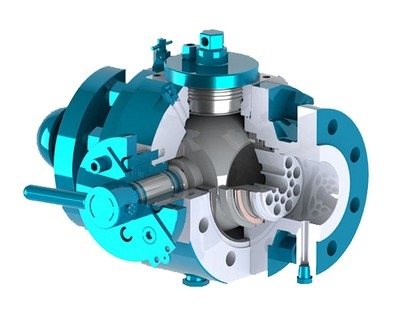
Price Quote

Price Quote

Price Quote

Price Quote

Price Quote
API – 6D Pig Valve Model SHPV
All 6D models are manufactured & monogrammed per API 6D latest Edition ISO 9001, fire tested per API 607 and API 6FA
Specifications
Size : 2” through 12”
Pressure Class : ASME 150 through 1500 PSI
Temperature Rating : - 50⁰F to400⁰F
Qualifies to Standrad
API 6A
CE / PED 97/23/EC
ISO 9001-2008
Applications
Sweet or Sour petroleum
Chemical & Processing plants
Food processing
Salt water
Salient features
Double Block and Bleed arrangement
Energised upstream sealing seat
Automatic body cavity venting downstream.
Double Sealed Bonnet, Entry Cap and Adaptors for maximum Safety.
Wide temperature range –50 to 200 degrees Fahrenheit.
Emergency Seat Sealant Injection Fittings
Body cavity vent in entry cap, Lockable Stop Plate in Open or Closed Position
Positive Shut Off with optional By-Pass valving
0 notes
Text
Solving Well Integrity Challenges in the Niger Delta with Advanced Completion Equipment

The Niger Delta’s swampy and deltaic terrain presents some of the most complex well integrity challenges in the world. Constant fluid movement, high pressures, and corrosion-prone environments demand purpose-built oilfield equipment that not only withstands harsh conditions but ensures reliability in the long run.
At Parveen Industries, we engineer and deliver field-tested completion and production tools specifically designed to tackle these challenges. From packers and bridge plugs to chemical injection valves, API 6A gate valves, and wellhead assemblies, our equipment provides maximum sealing efficiency, corrosion protection, and operational safety in sensitive zones.
Engineered Tools for Swamp and Delta Wells
Our locally-optimized solutions include:
AS1-XHP Mechanical Packer: Built for high-pressure sealing in hostile formations, this packer ensures mechanical isolation without slippage — essential in the shifting beds of the Niger Delta.
Chemical Injection Subs: Enable precise chemical delivery into the production stream, mitigating corrosion and scaling in high-salinity zones common in Nigeria's delta formations.
API 6A Gate Valve – High Temp Service: Manufactured to API 6A standards, this gate valve ensures pressure containment and safe shutoff, even under elevated temperature and pressure regimes.
Wellhead and X-Mas Tree Assemblies: Integrated designs that combine durability with ease of maintenance, suited for dual and single completions across Nigeria’s inland and offshore operations.
Surface-Controlled Subsurface Safety Valve (SCSSV): A critical line of defense against blowouts and uncontrolled flow, our SCSSVs are tested for fail-safe operations in deep vertical and deviated wells.
HFP Plug Valve: Designed for fast open-close cycles and minimal pressure drops, this valve improves operational efficiency during surface interventions and well testing.
Why Parveen Equipment Is Ideal for the Nigerian Market
Our solutions are engineered with:
Superior metallurgy for corrosion-prone environments.
Field-proven mechanical strength for swamp-based completions.
Compatibility with local service teams and rigs operating in the Niger Delta.
With a legacy of innovation and global reach, Parveen Industries remains a trusted supplier for Nigerian operators, EPC contractors, and well service companies. Whether you are handling complex completions or prioritizing well integrity, our equipment is designed to perform — every time.
Explore more at parveenoilfield.com/ng
0 notes
Link
0 notes
Text

API Ring Gasket is a high-performance sealing solution designed for extreme pressure and temperature conditions in critical industries like oil & gas, petrochemical, and power generation. Precision-engineered to meet API 6A and ASME B16.20 standards, these gaskets ensure leak-tight metal-to-metal sealing for flanges, valves, and pressure vessels. API Ring Gaskets are available in R, RX, and BX styles, making them ideal for high-integrity applications that demand maximum reliability and safety.
0 notes
Text
0 notes
Text
PTFE Encapsulated Gaskets: The Ultimate Solution for Corrosive Piping Systems
The 5-Year Zero-Failure Case That Changed Everything
In 2022, a Middle East petrochemical plant eliminated gasket failures completely after switching to PTFE encapsulated designs. Their carbon steel flanges had been leaking every 3 months – until PTFE encapsulation gaskets delivered 5+ years of trouble-free service.
Last week at an acid pickling plant, we found textbook evidence: traditional graphite gaskets were full of corrosion holes, while adjacent PTFE-encapsulated versions looked factory-new after 18 months.
Here’s the million-dollar question: If these perform so well, why does API 6A still mandate metal cores?

PTFE Encapsulated Gaskets
1. Why Corrosion Eats Standard Gaskets Alive
The Acid Test Reality
Gasket TypeLifespan in 98% H₂SO₄Replacement CostCompressed Asbestos3 months$800PTFE Encapsulated5+ years$2,200
Boom! That’s 20x longer service life for just 2.75x the initial cost.
Fun fact: PTFE is just Teflon’s chemical name – same stuff coating your frying pan but engineered differently.
2. The Anatomy of a Perfect PTFE Encapsulation
Critical Factor 1: Metal Core Thickness
0.5mm core: 35 bar burst pressure
1.0mm core: 72 bar burst pressure (per Shell DEP 31.38.01.12)
Critical Factor 2: PTFE Jacket Thickness
2mm minimum for general acid service
4mm required for FGD systems (pH swings from 2 to 13)
Handwritten note: 2024 field data shows 1.2mm cores outperform in liquid chlorine – contrary to specs!
3. 3 Industries Where It’s Game-Changing
Industry 1: Chlor-Alkali Plants
Chlorine + 50ppm water destroys standard gaskets in weeks
PTFE encapsulation resists “wicking” corrosion at bolt holes
Industry 2: Flue Gas Desulfurization (FGD)
Handles pH 1.5 scrubber slurry that eats spiral-wound gaskets
Pro tip: Always specify 4mm PTFE for slurry services
Industry 3: Pharmaceutical CIP Systems
Withstands daily 85°C peracetic acid sterilization
Passes FDA extractables testing (unlike rubber alternatives)
“Regarding hydrogen peroxide concentration… (see BioPharma Guideline V7)”
4. Installation Mistakes That Void Warranty
Mistake 1: Using Bare Bolts
Causes galvanic corrosion – always use PTFE-coated fasteners
Mistake 2: Rough Flange Surfaces
3.2μm roughness causes cold flow leakage
Solution: Diamond paste finishing to 1.6μm Ra
Here’s the kicker: Your 2,200gasketfailsbecauseof2,200gasketfailsbecauseof0.50 bolts.
5. When NOT to Use PTFE Encapsulated
Exception 1: Superheated Steam
Above 300°C, switch to spiral-wound graphite
Exception 2: Liquid Fluorine Service
Causes PTFE embrittlement – use Kalrez instead
Controversial truth: That “cheap” gasket just cost you $50k in EPA fines.
The Bottom Line
A nickel ore acid leach plant cut maintenance costs by 58% annually after standardizing on PTFE encapsulated gaskets.
LCC analysis shows: Despite 4x higher initial cost, payback comes in 8 months through:
✓ Zero unplanned shutdowns
✓ Eliminated leak containment costs
✓ Reduced OSHA compliance overhead
Still using “economical” gaskets? Your maintenance team knows the real price.
0 notes
Text
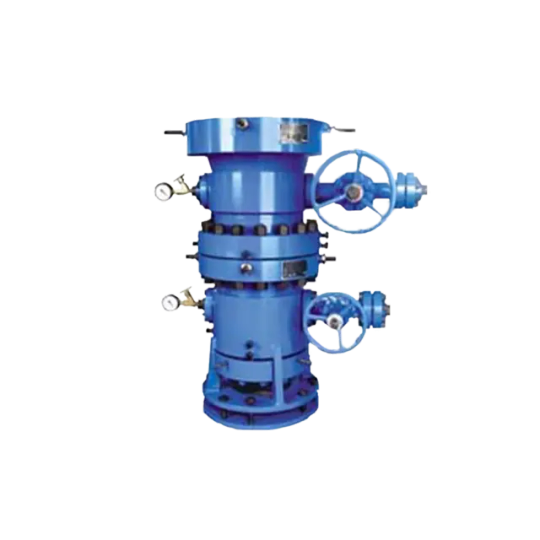
Our high-quality Casing Head connects casings to wellheads, supporting casing and oil string weight while sealing the annular space to ensure well integrity. Designed with two outlets, it allows cementing, monitoring, and fluid injection to optimize well operations.
Built with durable materials and meeting API 6A standards, it fits perfectly with our customizable casing hangers for different well conditions.
Choose reliability. Choose BESDRILL. 🚀
0 notes
Text
Industrial Flange Selection Guide: One Step to the Right Place

Selecting the proper business flange is crucial for making sure a dependable, efficient, and secure piping system. With numerous flange kinds and makes use of, industries ought to apprehend the important element elements that impact flange selection. From stress rankings to cloth compatibility, each detail performs an important role. This flange selection guide will assist you navigate the complexities of choosing the right flange in your specific wishes. At Manilaxmi Industrial, we offer awesome industrial flanges tailored to meet numerous commercial necessities.
Understanding Industrial Flanges
Industrial flange selection serves as vital connectors in piping structures, making an allowance for smooth meeting, protection, and disassembly of pipes. The preference of a flange relies upon several elements, alongside software, strain, temperature, and material compatibility.
Common Flange Types and Uses
Different industries require unique flange types and uses and make use of to ensure optimal overall performance. Below are the maximum not unusual flange types:
Flange Type
Uses and Applications
Weld Neck Flange
High-pressure and high-temperature applications such as refineries and chemical plants.
Slip-On Flange
Low-pressure systems where welding is required to strengthen the joint.
Blind Flange
Sealing off piping systems or isolating sections for maintenance.
Socket Weld Flange
Ideal for small-diameter, high-pressure pipes in industrial processes.
Threaded Flange
Used in low-pressure systems where welding is not feasible.
Lap Joint Flange
Works well with stub ends and allows easy alignment adjustments.
Orifice Flange
Installed in flow measurement applications using an orifice plate.
Flange Material Selection
Selecting the appropriate flange raw material is essential for making sure durability and overall performance. The raw materials need to be like minded with the medium flowing through the pipes to prevent corrosion and put on. Below are the most common materials utilized in commercial flanges:
Material Type
Characteristics and Applications
Carbon Steel
Cost-effective, strong, and widely used in general piping systems.
Stainless Steel
Corrosion-resistant, ideal for chemical and food processing industries.
Alloy Steel
Enhanced strength and resistance to high temperatures and pressures.
Duplex Stainless Steel
Combines strength and corrosion resistance, used in marine and oil industries.
Copper-Nickel
Resistant to seawater corrosion, used in marine applications.
Aluminum
Lightweight and corrosion-resistant, ideal for specific aerospace and marine industries.
Factors in Flange Selection Guide
When choosing the proper flange, consider the subsequent key elements:
1. Pressure and Temperature Ratings
Different flange training, which embody Class A one hundred fifty, 300, 600, 900, 1500, and 2500, decide the stress coping with capacity. Selecting a flange with the perfect rating guarantees protection and normal overall performance.
2. Flange Standards and Applications
Flanges should observe enterprise standards to ensure compatibility and safety. Some key flange standards and applications consist of:
ASME/ANSI B16.5 – Standard for pipe flanges and fittings.
ASME B16.47 – Large-diameter flanges.
API 6A – Flanges used in oil and gasoline industries.
DIN and EN Standards – European standards for business applications.
JIS Standard – Japanese flange widespread.
3. Flange Face Types
The flange types and makes use of vary based totally on face kinds, which have an impact on sealing performance:
Flange Face Type
Characteristics and Uses
Flat Face (FF)
Used in low-pressure applications.
Raised Face (RF)
Common in high-pressure applications where a better seal is required.
Ring Type Joint (RTJ)
Used in extreme pressure and temperature conditions.
Tongue and Groove (T&G)
Prevents gasket blowout, used in high-pressure settings.
Male and Female (M&F)
Ensures better alignment and gasket containment.
Industrial Flanges Comparison
Understanding commercial flanges evaluation facilitates in determining the best option in your software:
Criteria
Weld Neck Flange
Slip-On Flange
Blind Flange
Threaded Flange
Strength
High
Moderate
High
Low
Installation
Requires welding
Requires welding
No flow passage
No welding needed
Cost
Higher
Lower
Moderate
Lower
Applications
High-pressure
Low-pressure
Maintenance
Low-pressure systems
Best Flange for Piping
The best flange for piping relies upon the system’s precise desires. Here’s how to decide the proper one:
For excessive-strain, high-temperature programs – Weld neck flanges
For easy installation and decrease price – Slip-on flanges
For separating piping sections – Blind flanges
For threaded connections without welding – Threaded flanges
For flexible alignments – Lap joint flanges
Selecting the proper flange requires a radical knowledge of flange choice guide factors, consisting of material, strain ratings, face types, and applications. The right preference complements gadget durability, efficiency, and safety. At Manilaxmi Industrial, we concentrate on offering top-best industrial flanges comparison to meet the best industry standards. Whether you need flange sorts and make use of, flange raw materials selection, or flange requirements and programs, we are right here to assist you.
For professional guidance in deciding on the right flange, contact Manilaxmi Industrial today!
#industrial flange selection#flange selection guide#choosing the right flange#flange types and uses#best flange for piping#industrial flanges comparison#flange material selection#flange standards and applications
0 notes
Text
We are Ring Type Joint Gaskets manufacturer & supplier in India. A Ring Type Joint (RTJ) gasket is a forged ring that fits into the machined groove of an RTJ flange. The ring-type joint gaskets have octagonal or oval cross-sections. RTJ gaskets are often utilized for high-pressure, high-temperature applications. It is widely utilized in the refining, petrochemical, and oilfield drilling sectors. Ring type joints are made in accordance with ASME B16.20. They are dimensionally compatible with flanges manufactured to ASME B 16.5, ASME B16.47, and API 6A specifications.
#OrdinemEngitech#RingTypeJointGaskets#RTJGaskets#GasketManufacturer#SealingSolutions#IndustrialGaskets#CustomGaskets#GasketSupplier#HighPressureSealing#HighTemperatureGaskets
0 notes
Text
What Makes ICCL DBB Valves Ideal for Oil & Gas Operations?
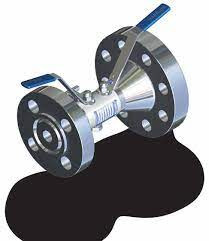
In the world of oil and gas, ensuring system integrity, safety, and effective shutdown control is absolutely critical. The conditions can be tough, the pressures can be intense, and the stakes are incredibly high. That’s why Double Block and Bleed (DBB) valves have become a vital component in today’s pipeline and process designs.
When engineers are on the hunt for a reliable DBB valve, they often turn to ICCL (Industrial Component Corporation Limited). Known for their engineering prowess and dependability, ICCL produces high-performance DBB valves that are specifically crafted to meet the rigorous standards of the oil and gas industry.
Let’s dive into what makes ICCL DBB valves the go-to option for oil and gas projects across upstream, midstream, and downstream operations.
What Are Double Blocks and Bleed Valves?
A Double Block and Bleed (DBB) valve is a streamlined valve system that combines two isolation valves and a bleed valve into one compact assembly. This innovative design offers:
- Primary and secondary isolation from process media
- The ability to bleed or drain the cavity between the two valves to confirm isolation
- Enhanced safety during maintenance and testing
- A reduction in weight, space, and potential leak paths
DBB valves are typically utilized in:
- Pipeline instrumentation
- Pressure relief systems
- Metering skids
- Wellhead control panels
- Separator units
Why ICCL DBB Valves Excel in Oil & Gas Applications
ICCL’s DBB valves are specifically engineered for critical operations in the oil and gas sector. Here’s what sets them apart:
1. Sturdy, Compact Design
ICCL’s DBB valves merge two independent ball or needle valves with a bleed valve into a single forged or barstock body. This design minimizes the need for multiple fittings, cuts down on leak paths, and ensures a smaller installation footprint — which is essential for offshore rigs and tight metering stations.
Design options include:
- Ball-Ball-Bleed
- Needle-Needle-Bleed
- Ball-Needle-Bleed (hybrid configuration)
Each valve design undergoes rigorous testing to meet ANSI, API, and ASME standards, ensuring reliability even in high-pressure situations.
Built for High-Pressure and Sour Service
ICCL designs its DBB valves to handle extreme pressures, reaching up to 10,000 psi, and the corrosive substances found in crude oil, natural gas, and chemical injection systems.
These valves are crafted to meet the following standards:
NACE MR0175 for sour gas environments
API 6A / API 6D for petroleum production and pipeline systems
ASME B16.34 for valve integrity and pressure containment
3. Top-Quality Materials for Tough Conditions
In the oil and gas sector, choosing the right materials can be the key to safety or disaster. ICCL only uses certified and traceable materials that are customized to meet client needs.
Material choices include:
316 / 316L Stainless Steel
Duplex / Super Duplex
Inconel, Monel, Hastelloy (for areas with high corrosion)
Carbon Steel with zinc phosphate or Xylan coating
Every valve is accompanied by complete Mill Test Certificates (MTCs) and traceability documentation to ensure QA compliance.
4. Zero Leakage, Guaranteed
Preventing leaks is absolutely crucial in the oil and gas industry, especially in hazardous locations. ICCL DBB valves are subjected to 100% pressure testing, which includes:
Hydrostatic shell & seat testing
Pneumatic seat leak testing
Helium leak detection (available upon request)
ICCL’s metal-to-metal and soft seat options guarantee a bubble-tight shutoff. Plus, valves can be fire-safe tested according to API 607 if needed.
Versatile End Connections and Configurations
ICCL provides DBB valves in a variety of configurations to fit your project’s piping and instrumentation layouts:
End Connections: Flanged (ANSI/ASME/RTJ), NPT, BSP, Butt Weld, Socket Weld
Mounting: Panel-mounted, bracketed, or block-mounted
Optional Add-ons: Drain ports, test points, vent valves, lockable handles, anti-tamper caps
This versatility makes ICCL your go-to solution provider for oil & gas EPCs and OEMs.
Custom-Made for Complex Projects
A deepwater subsea skid
A refinery fuel line
Or an LNG export terminal
ICCL is equipped to design, build, and deliver DBB valves that fit seamlessly into your system — guaranteeing performance, safety, and easy maintenance.
Global Delivery and Technical Support
With an expanding footprint in the Middle East, Africa, Southeast Asia, and North America, ICCL caters to oil and gas clients around the globe. The company prioritizes timely deliveries, precise documentation, and attentive after-sales support.
Documentation includes:
QAP, ITP, MTCs, FAT reports
NDT reports (DPT, UT, RT)
Hydro test and calibration certificates
ICCL DBB Valves — Built for Energy Sector Demands
The oil and gas sector requires precision, safety, and unwavering performance — and ICCL rises to the occasion. With a solid history of producing high-integrity DBB valves, ICCL has established itself as a trusted partner for critical isolation in some of the world’s most intricate energy projects.
From offshore platforms to onshore pipelines, ICCL DBB valves are designed to excel, built to endure, and relied upon globally.
0 notes
Text
API-Compliant Oilfield Equipment for USA Operations
API-Compliant Oilfield Equipment for USA Operations
The oil and gas industry in the USA demands high-performance equipment that meets API standards, ensuring safety, efficiency, and reliability. At Parveen Oilfield, we specialize in manufacturing cutting-edge oilfield solutions tailored for the evolving needs of drilling, well control, completion, and production. Our products are engineered to withstand extreme conditions, delivering long-lasting performance in challenging oilfield environments.
Choke & Kill Manifolds for Superior Pressure Control
Choke & kill manifolds are critical for well control operations, helping operators regulate pressure, prevent blowouts, and maintain safety during drilling. Built to API 16C standards, our manifolds feature:
Adjustable chokes for precision pressure management
Manual and hydraulic controls for flexible operation
Corrosion-resistant materials for enhanced durability
These high-pressure manifolds play a key role in controlling unexpected surges, allowing oilfield operators to divert, maintain, and restore pressure efficiently.
Adjustable Chokes for Optimized Flow Regulation
Adjustable chokes allow operators to control well flow rates, preventing issues such as sand production, water coning, and gas breakthroughs. Parveen’s chokes offer:
Accurate flow regulation to maximize well productivity
Erosion-resistant trim for long-lasting performance
API 6A compliance for safe and reliable operations
Our adjustable chokes provide enhanced control over production rates, extending well life and ensuring stable reservoir performance.
Coil Tubing Pressure Control Equipment for Safe Well Interventions
Coil tubing pressure control equipment is essential for efficient well intervention, ensuring that pressure remains stable during cleanouts, acidizing, and stimulation. Our API 16A & API 6A-certified equipment is designed for:
Seamless pressure management during coiled tubing operations
Advanced safety mechanisms to prevent wellbore instability
Durability in extreme environments for extended service life
These systems enable operators to perform well maintenance efficiently, reducing costs and downtime while improving operational safety.
Downhole Completion Equipment for Maximum Reservoir Efficiency
Parveen’s downhole completion equipment is designed to enhance well productivity and extend operational life. Our API-certified solutions include packers, sliding sleeves, and safety valves, ensuring:
Optimized inflow control to regulate hydrocarbon production
Corrosion and temperature resistance for deep well operations
Customizable configurations for vertical, deviated, and horizontal wells
Our completion equipment supports efficient reservoir management, ensuring high recovery rates and long-term production stability.
Gas Lift Choke Valves for Artificial Lift Optimization
Gas lift choke valves regulate gas injection to enhance oil recovery, ensuring consistent well production. These API 11V1-certified valves offer:
Precise gas flow control to optimize artificial lift performance
Extended service life with corrosion-resistant materials
Easy maintenance for uninterrupted operation
Our gas lift choke valves help operators reduce lifting costs, improving overall well efficiency and profitability.
Wireline Retrievable Gas Lift Valves for Cost-Effective Lift Solutions
Wireline retrievable gas lift valves allow quick valve replacement without pulling the tubing, minimizing downtime and intervention costs. These valves provide:
Fast and easy retrieval via wireline for reduced workover expenses
Enhanced production efficiency through precise gas regulation
API 19G1 compliance for high-performance artificial lift systems
Designed for long-term reliability, our wireline retrievable gas lift valves ensure smoother well operations and sustained production rates.
Why Choose Parveen Oilfield for USA Oil & Gas Operations?
At Parveen Oilfield, we are dedicated to delivering high-quality, reliable equipment that meets the rigorous demands of the oil and gas industry. With a strong focus on safety, performance, and long-term durability, our solutions are designed to enhance efficiency and support seamless operations. Backed by decades of expertise, we continue to provide trusted equipment tailored to the evolving needs of the industry. To learn more about our offerings, visit our website today.
0 notes
Text
Custom Manufacturing for Multi-Zone Wells in Indonesia’s Offshore Fields

Indonesia’s offshore oil and gas fields are increasingly exploring multi-zone well completions to maximize hydrocarbon recovery in deepwater and shelf basins. These operations require specialized tools that can ensure effective zonal isolation, resist corrosion, and optimize flow across complex reservoir sections. At Parveen Industries, we offer custom-manufactured equipment tailored for the country’s offshore needs.
Our multi-zone packers and retrievable seal bore packers are engineered for high-differential pressure and temperature environments common in Indonesia’s marine formations. These packers ensure precise sealing and allow for selective zone production and stimulation.
For reliable completions, our bridge plugs and cement retainers provide proven performance in high-salinity and H₂S-prone conditions, while equalizing valves maintain downhole pressure integrity and operational flexibility.
To address mechanical reliability in the harsh offshore environment, we supply non-magnetic drill collars and grooved drill collars, supporting optimal bottomhole assembly design and directional stability.
Our coil tubing equipment, including quad BOPs and tubing hangers, supports intervention operations with maximum safety and efficiency.
We also provide a full range of API 6A gate valves and wellhead & X-mas tree assemblies, all designed for harsh offshore pressures and temperatures. Modular wellhead parts, adapters, and casing head spools ensure compatibility with a wide range of Indonesian offshore wells.
For stimulation and flow control, Parveen offers rugged HFP Plug Valves and production testing tools, built to withstand high-pressure circulation and abrasive slurries.
We further support sand control with gravel pack tools and bore maintenance using casing scrappers and non-rotating casing scrapers, minimizing tool wear and improving operational life.
With decades of engineering excellence, Parveen Industries remains a trusted partner for Indonesia’s offshore development needs—delivering precision, performance, and production assurance.
0 notes